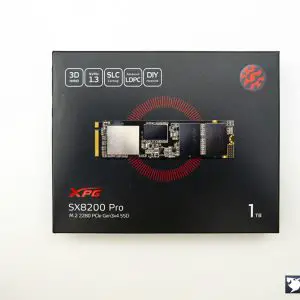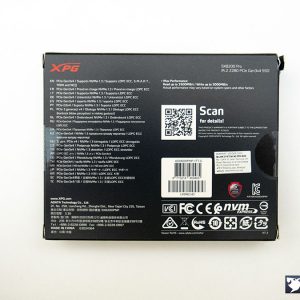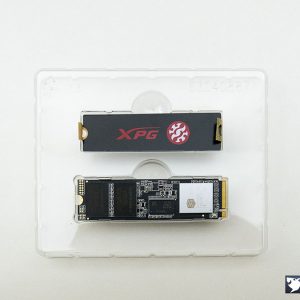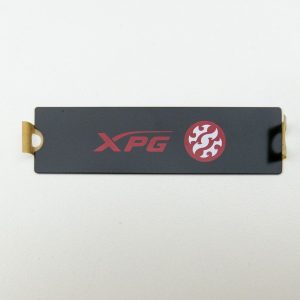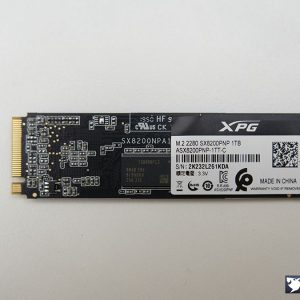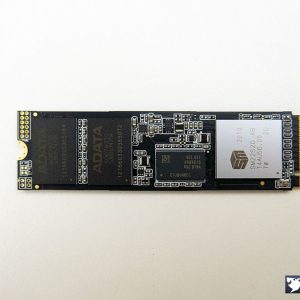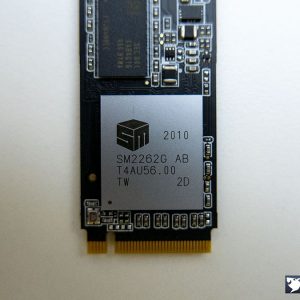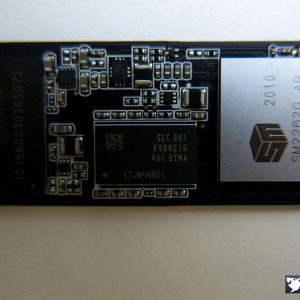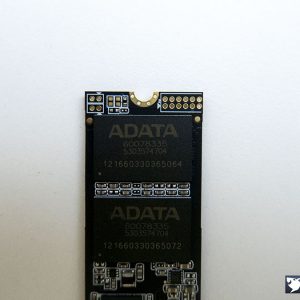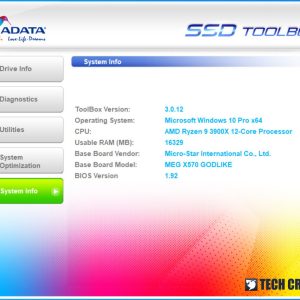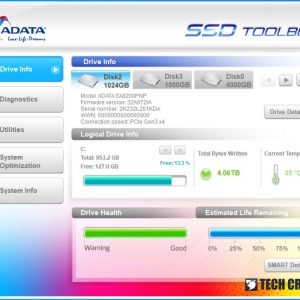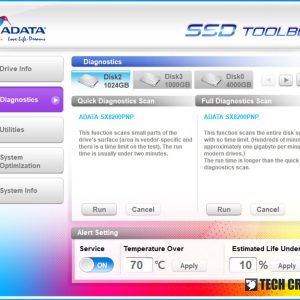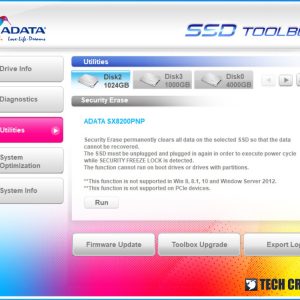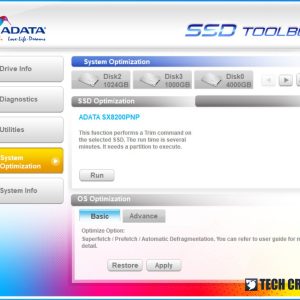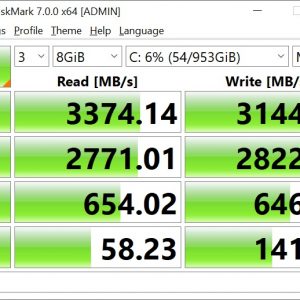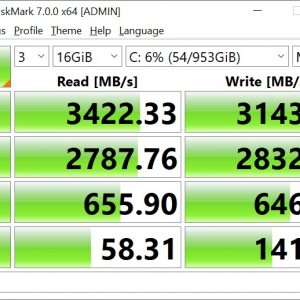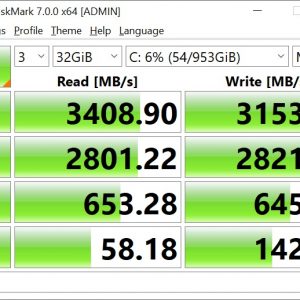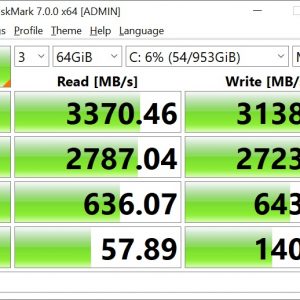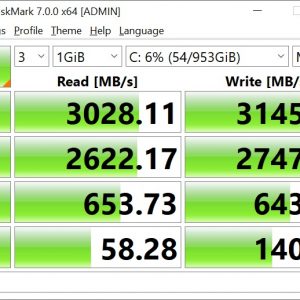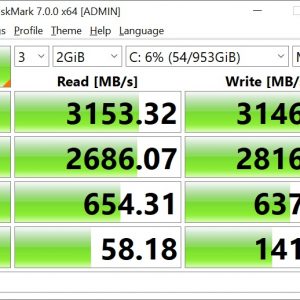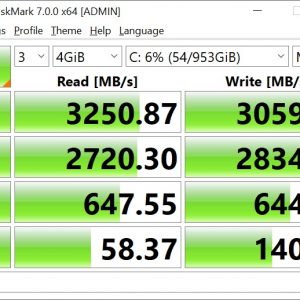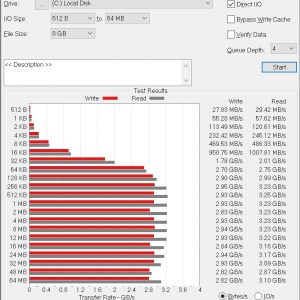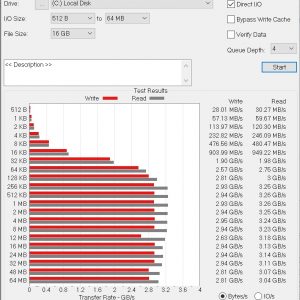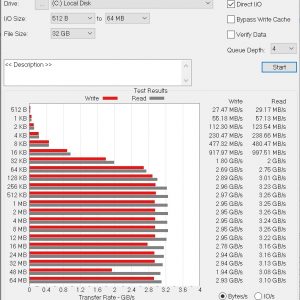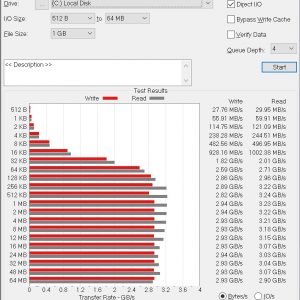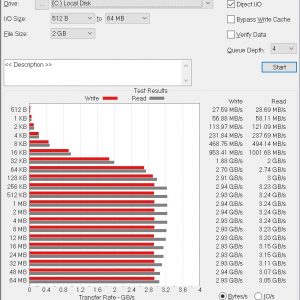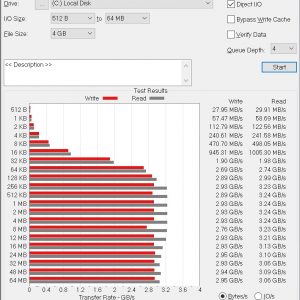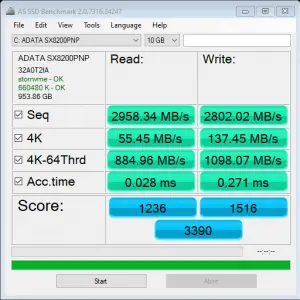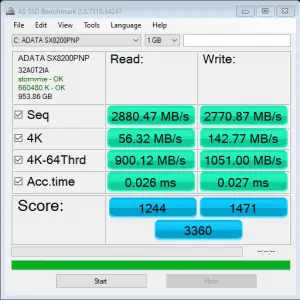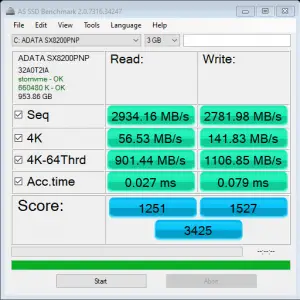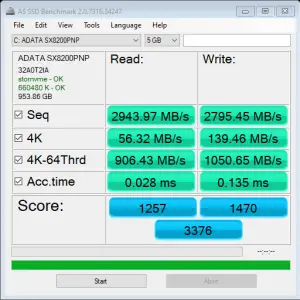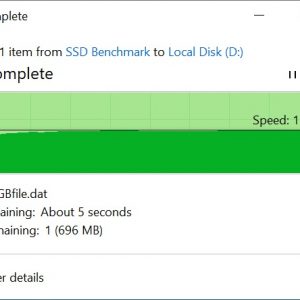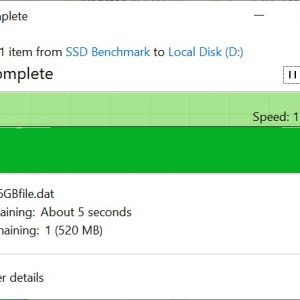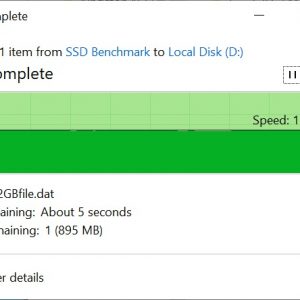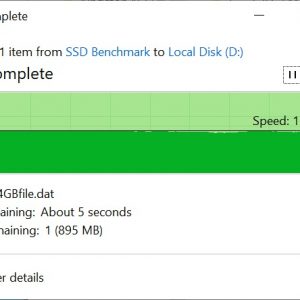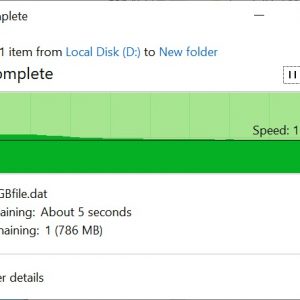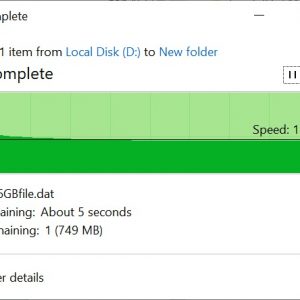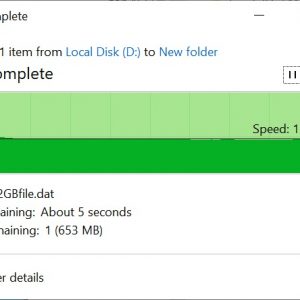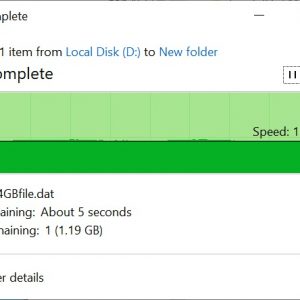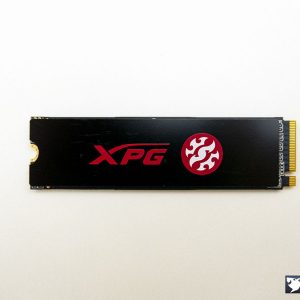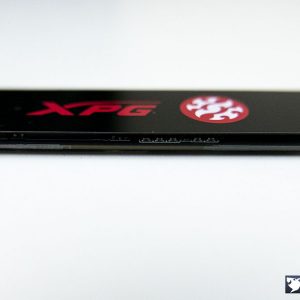M.2 SSD nowadays is capable of offering even faster performance than a regular SATA SSD at a very competitive price point and the ADATA XPG SX8200 Pro which we recently came across is one of the better-looking options available in terms of price and specifications. Equipped with Micron 64-layer 3D TLC NAND flash and Silicon Motion SM2262G controller the ADATA XPG SX8200 Pro is capable of 3500MB/s read and 3000MB/s write, making it one of the fastest performing PCIe Gen3 x4 M.2 SSD available in the market.
The 1TB SX8200 Pro we have here is priced at RM 659, a pretty decent price for what it’s capable of according to the specs but will it perform just as advertised? Well, let’s get into the review and see what the performance looks like.
Specifications
| Capacity | 256GB, 512GB, 1TB, 2TB |
| Interface | PCIe Gen 3.0 x4 |
| Controller | Silicon Motion SM2262G |
| Dimensions | 80mm x 22mm x 3.5mm |
| Weight | 8g |
| NAND | Micron 64L 3D TLC |
| Operating Temperature | 0°C to 70°C |
| Storage Temperature | -40°C to 85°C |
| Total Bytes Written (TBW) |
|
| Sequential Read/Write |
|
| Max. 4K Read/Write |
|
| Power Consumption |
|
| Warranty | Limited 5-year warranty |
Unboxing
Packaging wise, ADATA kept things simple and clean for the SX8200 Pro, as you will only find information such as the capacity of the drive and the features available, not those overly-exaggerated with unnecessary gimmicky terms. There’s not much information you can get from the back of the box but they did include a QR code that directs you to the product page if you wish to learn more about the product.
Inside the box, you’ll find the SX8200 Pro and a thermal label which can be stick onto the SSD to improve thermal performance. How much of an improvement are we talking about? Well, we’ll talk about that later as we dive further into the review.
The ADATA XPG SX8200 Pro
The SX8200 Pro comes with a black-colored PCB, a more favorable choice of color nowadays for PC build as compared to the generic green or blue PCB. As for the thermal label… We’d say it’s more of an optional attachment for the looks and we believe you can immediately tell how the cooling is going to be like with the thermal label installed although the thermal label will, or might provide a limited cooling effect for the SSD.
The SX8200 Pro comes with a Silicon Motion SM2262G controller, Samsung K4B4G1646E-BYMA 512MB DDR3 DRAM on each side of the PCB, and Micron 64L 3D TLC NAND flash.
SSD Toolbox
SSD Toolbox is ADATA’s very own SSD management software that is equipped with a number of useful features and a fairly simple design. Functionality wise, it’s not much different than most of the SSD management software from other brands but the effort is totally commendable as it’s definitely better than those generic OEM SSD that doesn’t come with any form of additional support.
Apart from the seemingly common features i.e drive health and status, run diagnostics, secure erase, and one-click system optimization, the software actually allows you to perform firmware updates for the SSD – that’s something you don’t get if you’re buying those generic OEM SSD.
Test System Setup
| CPU | AMD Ryzen 9 3950X |
| Motherboard | MSI MEG X570 GODLIKE |
| Memory | TEAMGROUP T-FORCE XTREEM ARGB DDR4@3200MHz |
| Graphics Card | NVIDIA GeForce RTX 2080 Founders Edition |
| Power Supply | Cooler Master V1200 Platinum |
| Primary Storage | ADATA XPG SX8200 Pro 1TB |
| Secondary Storage | WD Black 6TB |
| CPU Cooler | Cooler Master MasterLiquid ML360R RGB |
| Chassis | Streacom ST-BC1 Aluminium Open Benchtable |
| Operating System | Windows 10 64bit |
Synthetic Benchmark
CrystalDiskMark
Developed by a Japanese coder that goes by the nickname Hiyohiyo, CrystalDiskMark is one of the most frequently used SSD Benchmark utility to measure SSD’s read and write performance. There’s 2 option for the test data used, compressible (0 fill) and incompressible (1 fill).
ATTO Disk Benchmark
The most frequently used benchmarking utility by many manufacturers for performance specifications. As ATTO Disk Benchmark uses compressible data rather than incompressible data, it results in higher benchmark scores.
AS SSD Benchmark
Widely used SSD benchmarking utility that uses incompressible data to simulate the worst possible scenario for an SSD. Therefore, giving a much lower sequential read and write speed result than what has been stated by the manufacturer as a result of the heavy workload.
File Transfer Test
For this test, we’re using different sizes of test data from 8GB to 64GB to see how well the drive performs with large files. The test scenario is as usual, in which the file copy test is done with the drive freshly formatted, followed by filling it up to at least 80% of its maximum capacity.
File copied from SX8200 Pro to another SSD (read performance)
File copied to SX8200 Pro from another SSD (write performance)
Unlike some of the generic DRAMless SSD you’ll find out there, the SX8200 Pro has the advantage from that 1GB worth of DRAM cache and it barely shows any signs of performance drop even after we’ve occupied more than 80% of its total usable capacity. The only time you’ll notice a slight performance drop is when the temperature goes beyond the 70°C range but that only lasted for a few seconds before it starts to catch up again.
Temperature?
While the thermal label will slightly improve the heat dissipation as compared to a bare naked SSD, there’s still a limit on how much it can take with – after all, it’s still a thin piece of metal, not a huge chunk of Aluminum heatsink block.
During our file copy loop test, the temperature of the SSD can go up to 70°C and a minor performance drop that happened for a very short moment can be observed during the test. We recommend you to make use of a 3rd-party heatsink or the SSD heatsink that comes with your motherboard or just go with a 3rd-party M.2 SSD heatsink if you’re uncomfortable with the 70°C load temperature.
Final Thoughts
Honestly, there’s nothing much you can complain about when it comes to performance. Unless you’re well equipped with a PCIe 4.0 ready motherboard and have plenty of budgets to spend on a PCIe Gen4 SSD, a PCIe Gen3 x4 M.2 SSD is still a better choice if you’re looking for an upgrade for an existing system without PCIe Gen4 support. It’s also a viable SATA SSD replacement that offers both convenience and speed at a very similar price range.
While the SX8200 Pro is not the cheapest 1TB M.2 SSD around for sure, it does have plenty of speed and features to offer at the slightly higher than average RM699 price tag – you can even get it at a lower price during Lazada sales from reputable sellers. Of course, if you do have the budget to go for a higher capacity, the SX8200 Pro 2TB is also a pretty good choice that’s worth your consideration.
Pros
- Decent performance
- 1GB worth of DRAM cache
- Easy to use SSD management software
- 5-year warranty from ADATA
Cons
- Controller gets hot under heavy load


